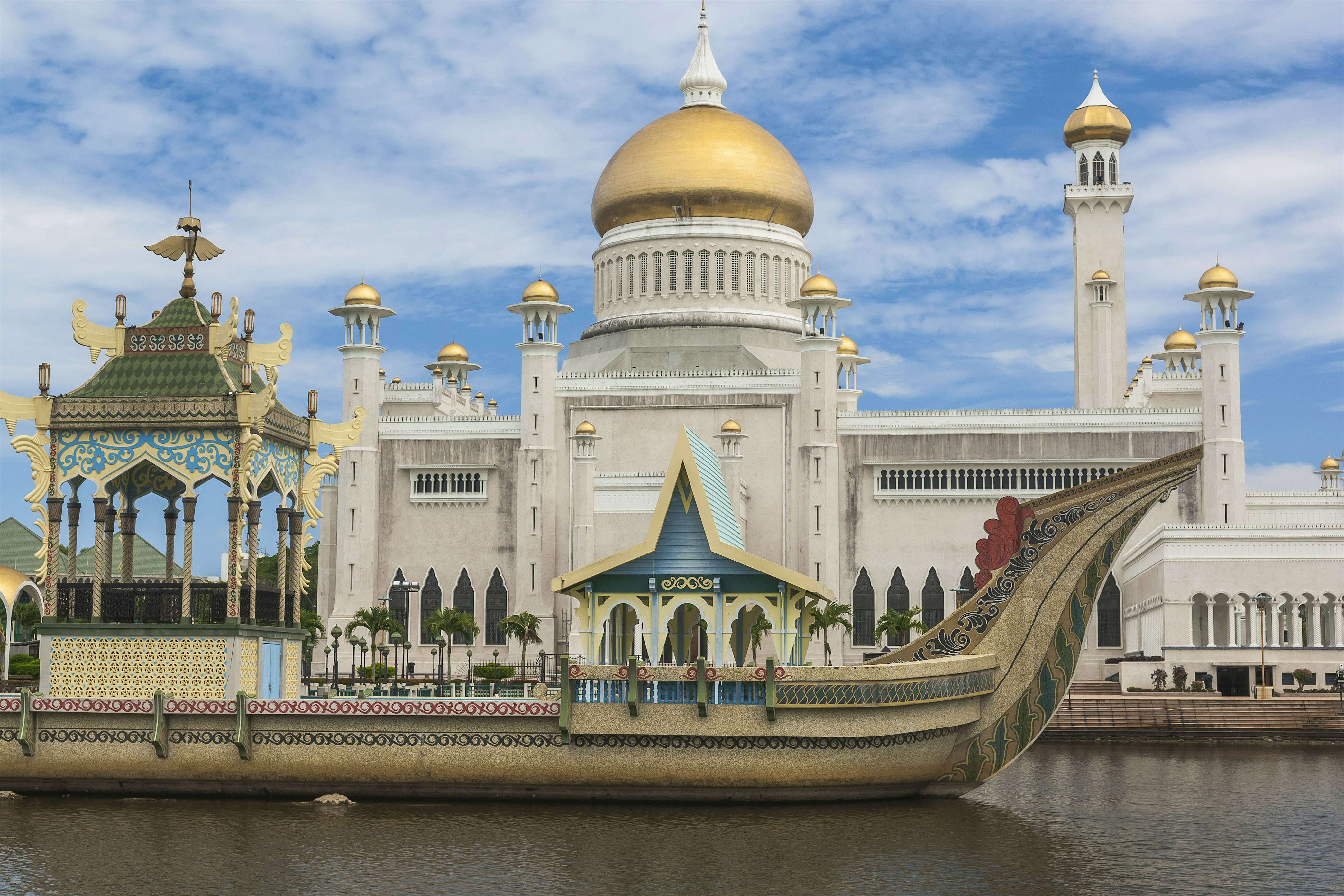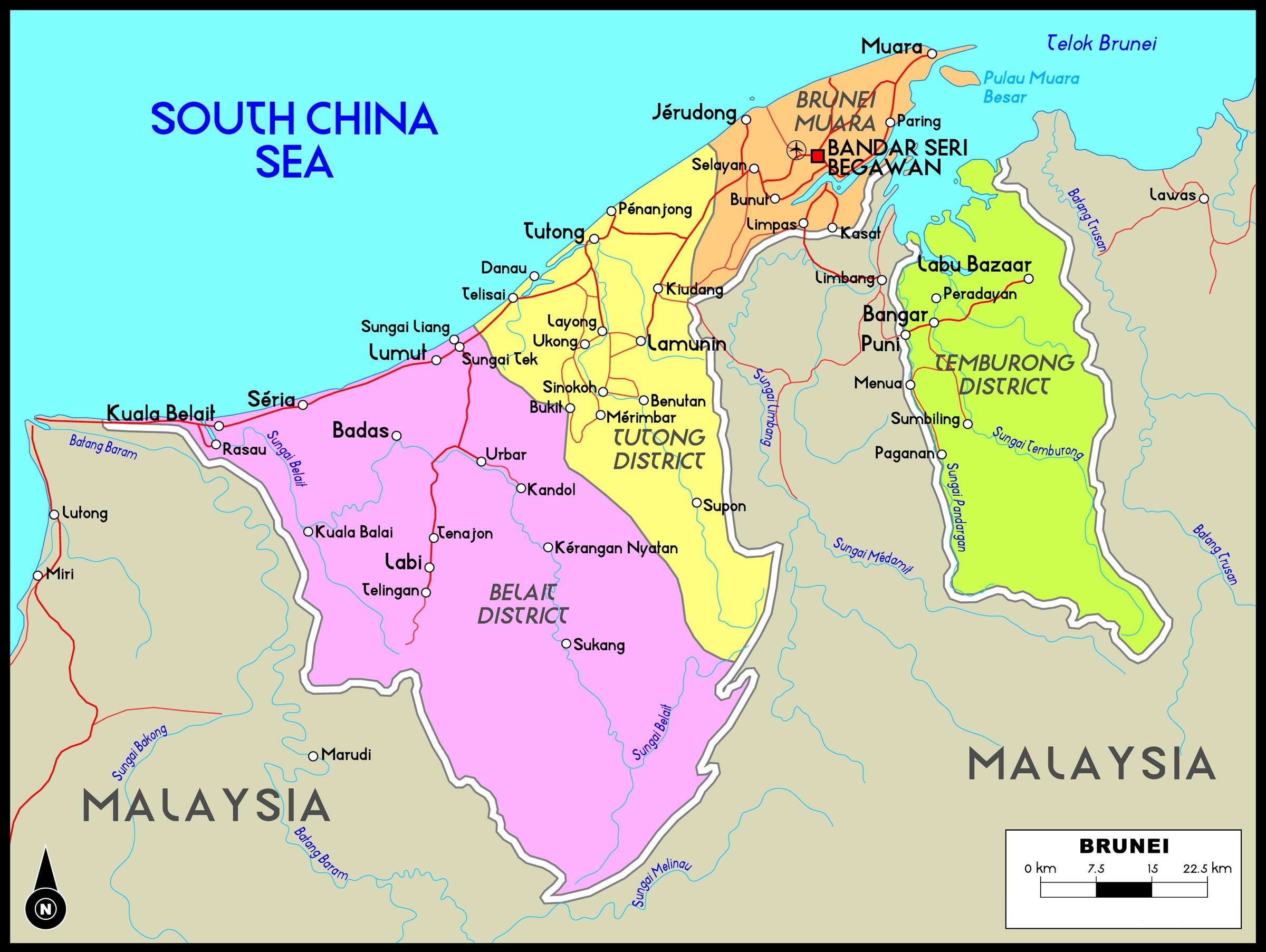Brunei: Discover Negara Brunei Darussalam & Southeast Asia's Jewel
Is it possible for a nation, seemingly small in size, to wield an outsized influence on the global stage? Brunei Darussalam, a tiny sultanate nestled on the island of Borneo, proves emphatically that it is.
Known officially as Negara Brunei Darussalam, the "Abode of Peace" has long been synonymous with opulence, a reputation fueled by its vast oil and gas reserves. This wealth manifests in shimmering mosques with golden domes, pristine beaches, and a culture that seamlessly blends tradition with modernity. Geographically, the nation is divided into two unconnected sections, separated by Malaysia, adding a unique dimension to its character.
| Attribute | Details |
|---|---|
| Official Name | Negara Brunei Darussalam (Nation of Brunei, the Abode of Peace) |
| Location | Northern coast of Borneo Island, Southeast Asia |
| Capital City | Bandar Seri Begawan |
| Area | 5,765 sq km (2,226 sq mi) |
| Coastline | 161 km (100 mi) |
| Government | Sultanate (Absolute Monarchy) |
| Head of State | His Majesty Sultan Haji Hassanal Bolkiah |
| Main Source of Income | Oil and Gas |
| Population (approx.) | 460,000 |
| Ethnic Groups | Malay, Chinese, Indigenous |
| Religion | Islam (official) |
| Official Languages | Malay, English |
The history of Brunei is as rich as its resources. Legend credits the founding of the Brunei Sultanate to Awang Alak Betatar. Situated in the northern part of Borneo (Kalimantan Island), Brunei's strategic location has contributed to its historical significance. Brunei was a powerful maritime empire, its influence reaching across the region, before the arrival of European powers. It then transitioned into a British protectorate, gaining its independence in 1984. The vestiges of this past are woven into the fabric of Brunei, from its language and culture to its legal system and national identity.
Brunei's economic prosperity is undeniable. Oil and gas have propelled the nation to the forefront, providing a high standard of living for its citizens. This wealth has allowed for significant investment in infrastructure, healthcare, and education. Brunei's economy is heavily reliant on oil and gas exports, but the government is actively working to diversify its economy to reduce its dependency on these finite resources. Tourism, financial services, and downstream industries are areas of focus for future growth.
Brunei's landscape is a testament to its natural beauty. Tropical rainforests teem with diverse flora and fauna, including unique species found only on Borneo. The coastline boasts pristine beaches, creating a natural paradise for both residents and visitors. The district of Temburong, with its mountainous terrain and lush greenery, offers a glimpse of Brunei's unspoiled wilderness. Preserving this natural heritage is a priority, with conservation efforts aimed at protecting the environment and its biodiversity.
The cultural identity of Brunei is deeply rooted in Malay Islamic traditions. Islam is the official religion, influencing every aspect of life. The Sultan Omar Ali Saifuddien Mosque in Bandar Seri Begawan, with its golden dome and intricate architecture, is a prominent symbol of this faith. The Malay language and customs are central to daily life, reflected in traditional ceremonies, festivals, and cuisine. The Malay Islamic Monarchy is the core of Brunei's governance, influencing its legal frameworks and social norms.
Brunei has attracted international attention for its stance on specific social and legal matters. The nation's decision to impose severe penalties for certain offenses has sparked debate and discussion. In recent times, the Sultan has suspended the death penalty for certain crimes, showing the nation's efforts to evolve in the modern world. Brunei's commitment to its cultural and religious values continues to shape its society, but it also actively engages with the complexities of the global landscape.
Beyond its economic and cultural significance, Brunei offers a unique travel experience. From exploring the capital city's landmarks to immersing oneself in the tranquility of its natural landscapes, there is something for every traveler. The nation is investing in its tourism sector, promoting its culture and heritage to attract international visitors. Brunei's peaceful environment, combined with its rich cultural offerings, makes it an ideal destination for a memorable holiday.
Bruneis two separate sections, which are split by Malaysia, give it an intriguing physical makeup, almost becoming an enclave inside Malaysia. Approximately 97% of the population inhabits the western part, which is more extensive, while the eastern section, the District of Temburong, has a population of just about 10,000 people.
The country's blend of tradition and modernity is evident everywhere you go. The official website provides links and information on Brunei's art, culture, geography, history, travel and tourism. Bruneis history, geography, government, economy, and culture are all included on a detailed website. You can discover a wide range of information there, including where Brunei is located, what it is famous for, and what its capital is. From the official tourism website, learn about Brunei's history, culture, nature, and attractions. Discover the diverse ethnic groups, the Malay Islamic Monarchy, the national cuisine, and more.
In conclusion, Brunei Darussalam is more than just an oil-rich nation; it is a testament to the power of cultural identity, strategic positioning, and thoughtful governance. From its breathtaking mosques to its pristine rainforests, Brunei beckons the world to discover its unique charm and witness firsthand its commitment to peace, prosperity, and the preservation of its rich heritage.
To find out more about Brunei, you can visit the official website: Brunei Tourism


